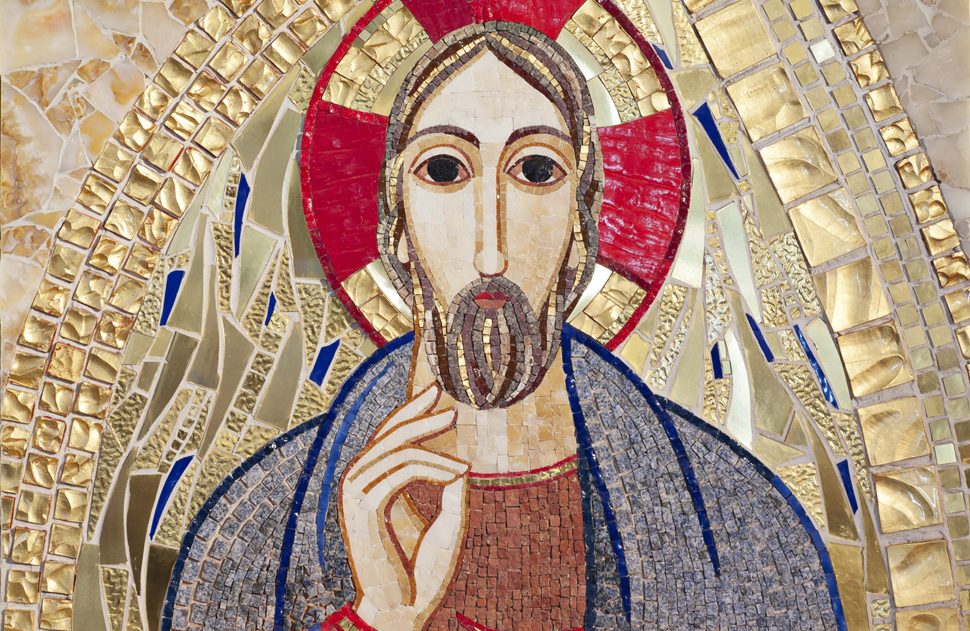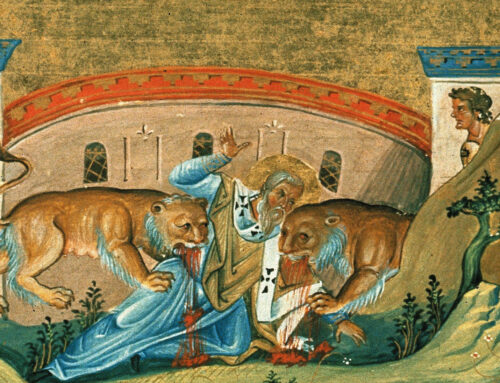Homily for Saturday of the Twenty-Fifth Week in Ordinary Time
Readings of the Day
Our Gospel passage is short today, so it would be helpful to provide the context in Luke’s gospel.
This passage comes immediately after the Transfiguration. As Jesus, Peter, James and John are coming back down the mountain, Jesus performs an exorcism on a young boy, and the gospel tells us: “All were astonished at the majesty of God.”
That’s where today’s Gospel picks up: “While they were still marveling at everything he did” — while they were still shocked by this amazing healing, Jesus predicts his Passion: “The Son of man is to be delivered into the hands of men.”
He makes it clear how important his words are: “Pay attention to what I am telling you,” he insists. One translation has him say: “Let these words sink into your ears.”
What’s really interesting, however, is that Jesus does NOT insist that his disciples fully understand what he’s talking about. In fact, they’re baffled by what he has to say, and even afraid to ask for clarification. Still, he simply says: “Let these words sink in.” “Let them dwell in you, even though they’re confusing at the moment. Let them take root deep in your hearts. That is enough for now.”
My brothers and sisters, this is an important lesson for us — especially with regard to all our evangelization efforts in a secular age: We need to become more comfortable with not being fully understood.
The Gospel is jarring. It is bewildering. We don’t need to over-explain the mysteries of our faith, lest we oversimplify them and rob them of their power to convert hearts!
I believe that our evangelization would be far more effective if we simply followed Jesus’ lead from today’s Gospel. What does he do? He draws his disciples close to him and says: “Let these words sink in… even if you don’t fully understand them quite yet.” Bury these words in your soul! They’re like seeds that will sprout later on. And see what happens: The people follow him, willing to trust Him even though they don’t have the fully story yet.
Why did he do this? Why didn’t he just lay out the whole strategy of salvation history right then and there?
If I may suggest a possible answer: Jesus wants a relationship of trust, not mere intellectual understanding.
Jesus didn’t want his followers to think He came to bring a convenient system of thought, or a new lofty philosophy that neatly explains everything for us. No…He came to be God-with-us. He came to suffer for us and with us. Our first reading speaks to this so beautifully when the prophet Zechariah proclaims: “See, I am coming to dwell among you, says the LORD.”
This is the great hope of our faith: That Jesus Christ came to give us access to the Father’s Heart — to welcome us into the new heavenly Zion, surrounded and protected by the fires of God’s eternal, unconditional Love.
In service to this much higher end, Jesus is comfortable with not being fully understood. He speaks the Truth and then he invites us, like our Blessed Mother, to ponder these things in our hearts… to let them sink in deep and await further explanation. All will be revealed in the end, but in the meantime: We can walk with the Lord in the midst of His Church, trusting that He is in control, not us.





Leave A Comment